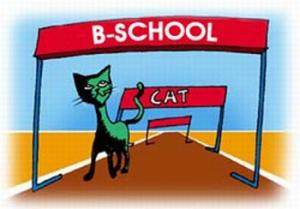 | « Back to article | Print this article |
MBA Interview: Crack the face-to-face ordeal
After the group discussion or essay stage, the next stage for selection in an MBA programme is the personal interview (PI). How should you prepare for this?
Firstly, remember that most interviews cover the following areas.
The manner in which most interviews commence is you being asked to introduce yourself. So you would do well to think about what you wish to speak about in your introduction time. I suggest that you try and ensure that you go beyond just repeating some mundane details about yourself. Very often, management institutes ask you to fill in a form before the interview, and such details are already covered in the form. So try and make your introduction interesting -- by highlighting your unique qualities, interests, and aims instead.
It is also a good strategy to highlight your achievements in your introduction -- this could impress the evaluators and go a long way in ensuring your success.
The first few minutes of the interview also provide an opportunity for the candidate to 'lead' the interview (to direct or 'steer' the subsequent discussion) into areas where one is comfortable. You can only do a good job of this if you are ready for subsequent questions. So, carefully think about what you wish to say in the beginning and the possible follow-up questions you could be asked. For example, if you mention that you are from a particular city, you could be asked what that city is known for.
Most interviewers do ask at least a few questions on academics, especially to those who are 'freshers', and are currently in their final year of studies, or those who have just recently completed their graduation. Candidates with substantial work experience can expect to be probed about their work, the company which they work for, or the latest developments in their industry.
So, candidates should revise the fundamentals or basics that they have studied during graduation. The focus is more on application-based questions, rather than just theory. For example, if you have an economics background, you may be asked for your opinion on inflation, and what could be done to control it.
The author is an alumnus of IIM Calcutta, an MBA preparation expert, and has been involved in MBA coaching since seven years. His book 'An Introduction to CAT: Tips from an IIM Alumnus' was published by Pearson Education. He can be contacted at bsiddharth_2001@yahoo.co.in
Stay prepared
Candidates are also expected to be well versed with current affairs and business affairs, and be ready to answer questions related to these. I advise that prospective candidates read the newspaper daily, and keep themselves abreast on the important issues of the day. The candidate should be aware of, and be able to speak on broader issues of national or international relevance.
Candidates could also expect to be asked some general questions such as:
- Why they wish to do an MBA, and their future career plans.
- Their hobbies and interests
- Their strengths and weaknesses
For such questions, I suggest you do some introspection. It is important to be honest and not make up anything! Be ready for follow-up questions. For example, if you say that you have a particular strength in something, you may be asked to justify it by providing an example of when you actually demonstrated it.
It is always a good idea to undergo a couple of mock interviews before your actual one, and incorporate any feedback that you may receive. Such mock interviews help you to prepare for questions that you may not have thought of, or at least brush up some areas you are weak in.

